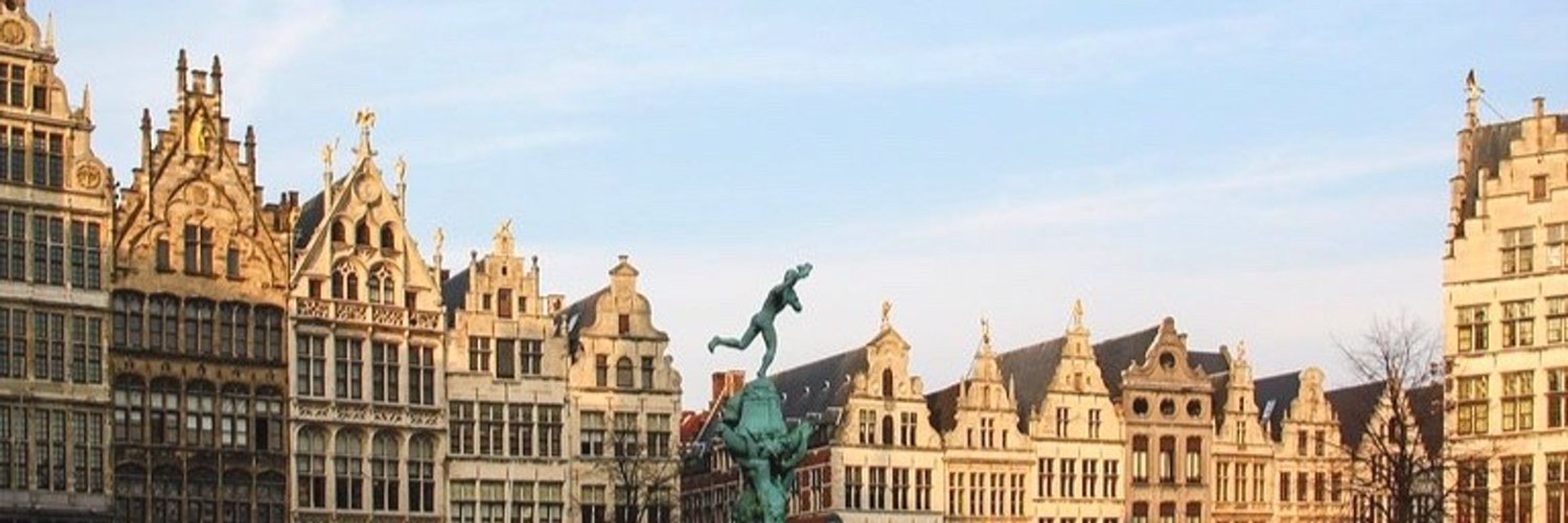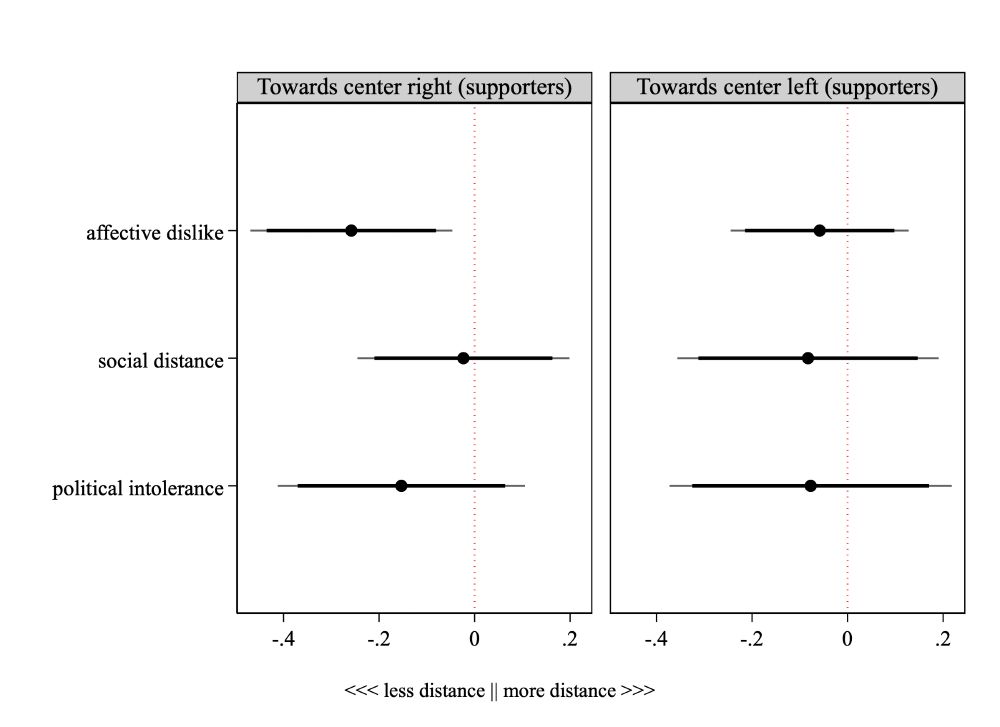

✔️ Center-right supporters become 𝙢𝙤𝙧𝙚 𝙩𝙤𝙡𝙚𝙧𝙖𝙣𝙩 and 𝙡𝙚𝙨𝙨 𝙝𝙤𝙨𝙩𝙞𝙡𝙚 toward the radical right.
✔️ Radical-right supporters become 𝙡𝙚𝙨𝙨 𝙝𝙤𝙨𝙩𝙞𝙡𝙚 toward the center right.
❗ But: center-left supporters also seem to grow 𝙢𝙤𝙧𝙚 𝙝𝙤𝙨𝙩𝙞𝙡𝙚 toward the center right!



✔️ Center-right supporters become 𝙢𝙤𝙧𝙚 𝙩𝙤𝙡𝙚𝙧𝙖𝙣𝙩 and 𝙡𝙚𝙨𝙨 𝙝𝙤𝙨𝙩𝙞𝙡𝙚 toward the radical right.
✔️ Radical-right supporters become 𝙡𝙚𝙨𝙨 𝙝𝙤𝙨𝙩𝙞𝙡𝙚 toward the center right.
❗ But: center-left supporters also seem to grow 𝙢𝙤𝙧𝙚 𝙝𝙤𝙨𝙩𝙞𝙡𝙚 toward the center right!


